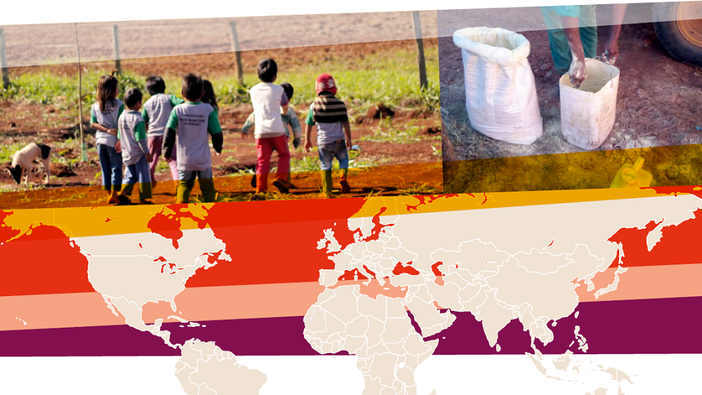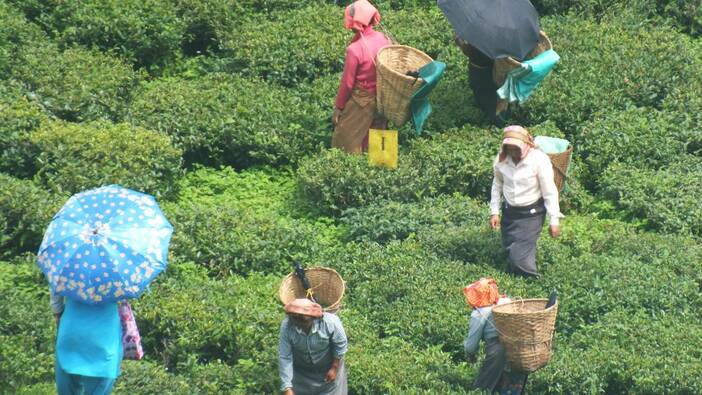![[Translate to en:] Doppelstandards und Ackergifte von Bayer und BASF [Translate to en:] Doppelstandards und Ackergifte von Bayer und BASF](/fileadmin/_processed_/1/b/csm_Pestizidwirkstoffe_Broschuere_grafiken_4zu5_teaser_37a39bcd06.jpg)
The two German agrochemical companies develop and bring to market highly hazardous pesticide active ingredients that damage the health of farmworkers and farmers in Brazil, Mexico and South Africa.
In a new study, the Rosa-Luxemburg-Stiftung, the INKOTA-netzwerk and PAN Germany show that Bayer and BASF are responsible for the marketing and in some cases development of at least 33 pesticide active ingredients that pose an acute threat to human health. Many of these active ingredients are lethal even at low doses, others are quite likely carcinogenic, mutagenic, or reprotoxic. In Brazil, Mexico and South Africa, at least eight of these active ingredients can be found in the pesticide portfolios of the two companies. Among them are glufosinate and spirodiclofen.
Double Standards and Hazardous Pesticides from Bayer and BASF is a joint study by the Rosa-Luxemburg-Stiftung, the INKOTA-netzwerk, and PAN Germany.
In South Africa, the two German agrochemical companies market a total of six active ingredients in their own pesticide products, the use of which is banned in the EU because of the severe associated health risks. In Brazil and Mexico, there are seven and five active ingredients present in Bayer’s and BASF’s products, respectively. Farmers and farmworkers in the Global South pay the price for this with their health. On wine farms in the Western Cape province in South Africa, the insecticide Tempo SC from Bayer is used on a large scale. It contains the highly hazardous active ingredient (beta-)cyfluthrin, which is lethal even in small doses. On some farms, farmworkers are sent into the vineyards while these highly hazardous pesticides are being sprayed and applied in the fields.
Although Bayer made a public commitment in 2013 to no longer market active ingredients of high acute toxicity (WHO Classes 1A/1B), this continues to happen: among other things, Bayer supplies the active ingredient fenamiphos to Brazil, which is processed there by another company and marketed as NEMACUR. Despite the great lack of transparency in the international pesticide market, the authors of the study succeeded in proving the hidden trade of this highly hazardous Bayer active ingredient using the example of Fenamiphos. Although Bayer does not directly sell any pesticides containing the active ingredient, the original Bayer active ingredient fenamiphos reaches the market in Brazil via the pesticide products of other manufacturers.
In order to end the double standards of the international trade in pesticide active ingredients, there needs to be, among other things, a global ban on the production, storage, and trade of highly hazardous pesticide active ingredients.

